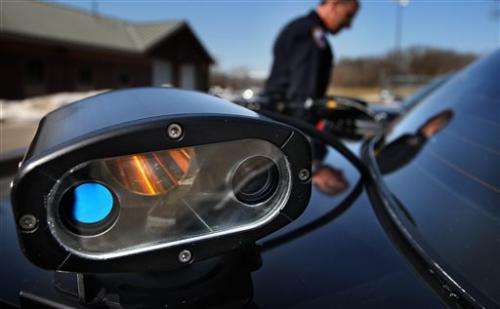US states look to rein in government surveillance (Update)

Revelations of National Security Agency surveillance programs have prompted state lawmakers around the United States to propose bills to curtail the powers of law enforcement to monitor and track citizens.
Republican and Democratic lawmakers have joined in proposing the measures, reflecting the unusual mix of political partnerships that have arisen since former NSA analyst Edward Snowden began revealing how the agency collected information on millions of Americans' phone calls. Both conservative limited government advocates and liberal privacy supporters have opposed the surveillance programs.
Proponents say the states' measures will overhaul outdated digital privacy laws and help increase oversight of specific surveillance tools that law enforcement agencies have been using that critics say mirrors federal surveillance technology.
The bills taking shape in at least 14 states include a Colorado proposal that would limit the retention of images from license plate readers, an Oregon bill that would require "urgent circumstances" to obtain mobile phone location data and a Delaware plan that increases privacy protections for text messages.
Supporters say the measures are needed because technology has grown to the point that police can digitally track someone's every move.
"We need to stand up and protect our liberty," said Republican Missouri state Sen. Rob Schaaf, author of a digital privacy bill.
Police groups, however, say the moves will in some cases hinder efforts to deter or solve crimes. "It would cripple law enforcement's ability to do investigations," said Bart Johnson, executive director of the International Association of Chiefs of Police.
Devices such as license plate readers and mobile phone trackers "can tell whether you stayed in a motel that specializes in hourly rates, or you stopped at tavern that has nude dancers," said David Fidanque, director of the American Civil Liberties Union of Oregon.
"It's one thing to know you haven't violated the law, but it's another thing to know you haven't had every one of your moves tracked," he said.
As for digital privacy, bills promoting broader protections against email surveillance have popped up recently in various states with varying results. One proposal became law in Texas last year, but a similar measure was vetoed in California where the governor said it was too onerous for police to follow.
But proposals focused specifically on police surveillance are a new variety.
Schaaf's proposal in Missouri for a legislatively mandated ballot measure would add electronic data to a list of property protected from unreasonable search and seizure. If it passes, it would go before voters in November.
In Indiana, legislators have put forward a bill that would ban the warrantless use of a portable device that can track mobile phone movements within a mile (two kilometers), as well as the numbers of incoming and outgoing calls and text messages. Indiana lawmakers also want to use warrants to limit the use of tracking devices and surveillance cameras.
Oregon prosecutor Josh Marquis said the legislators' concerns are misplaced. He said state agencies aren't collecting the kind of metadata the NSA collects and bills curtailing the ability of local authorities to gather intelligence could do more harm than good.
Under NSA surveillance programs that Snowden revealed, the agency sweeps up information about millions of Americans' phone calls: the number called from, the number called and the duration of the call.
That information is stored at NSA facilities until a secret court known as the Foreign Intelligence Surveillance Court gives intelligence officers permission to examine the phone call if investigators believed there was a connection to a terrorist. Another similar program examines Internet data and email traffic.
After months of NSA revelations, President Barack Obama last month proposed changes that would require bulk telephone data collected by the NSA to be stored outside the government to reduce the risk of abuse and put limits on the number of people who could be watched.
© 2014 The Associated Press. All rights reserved.


















